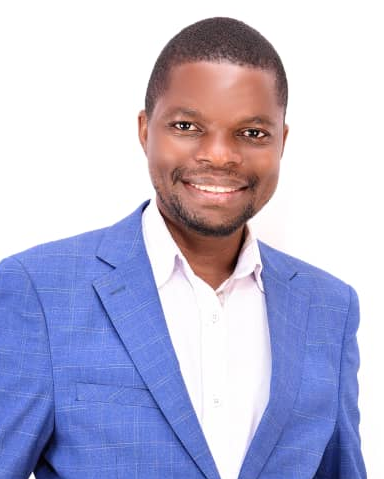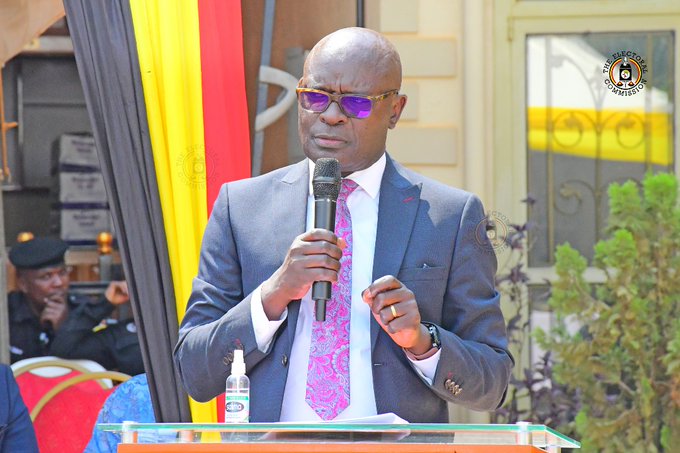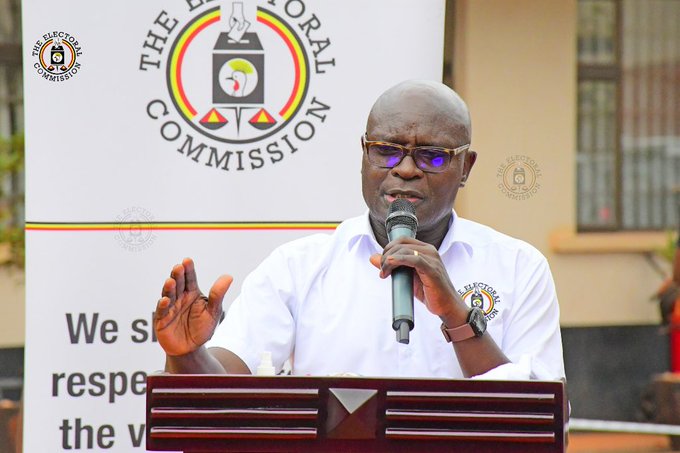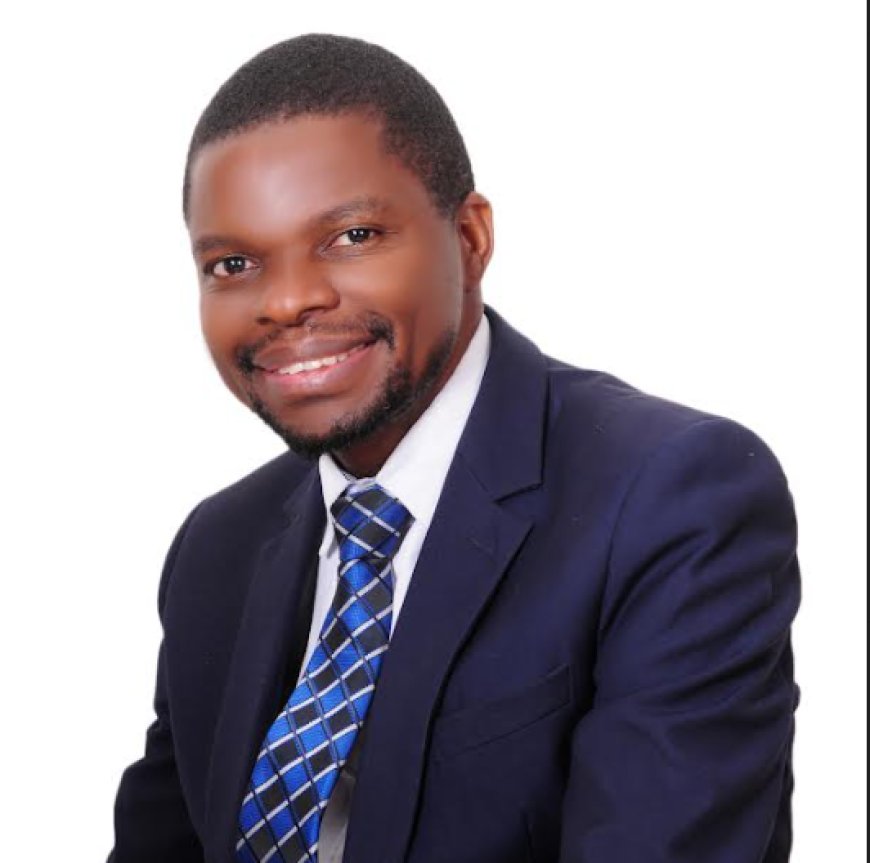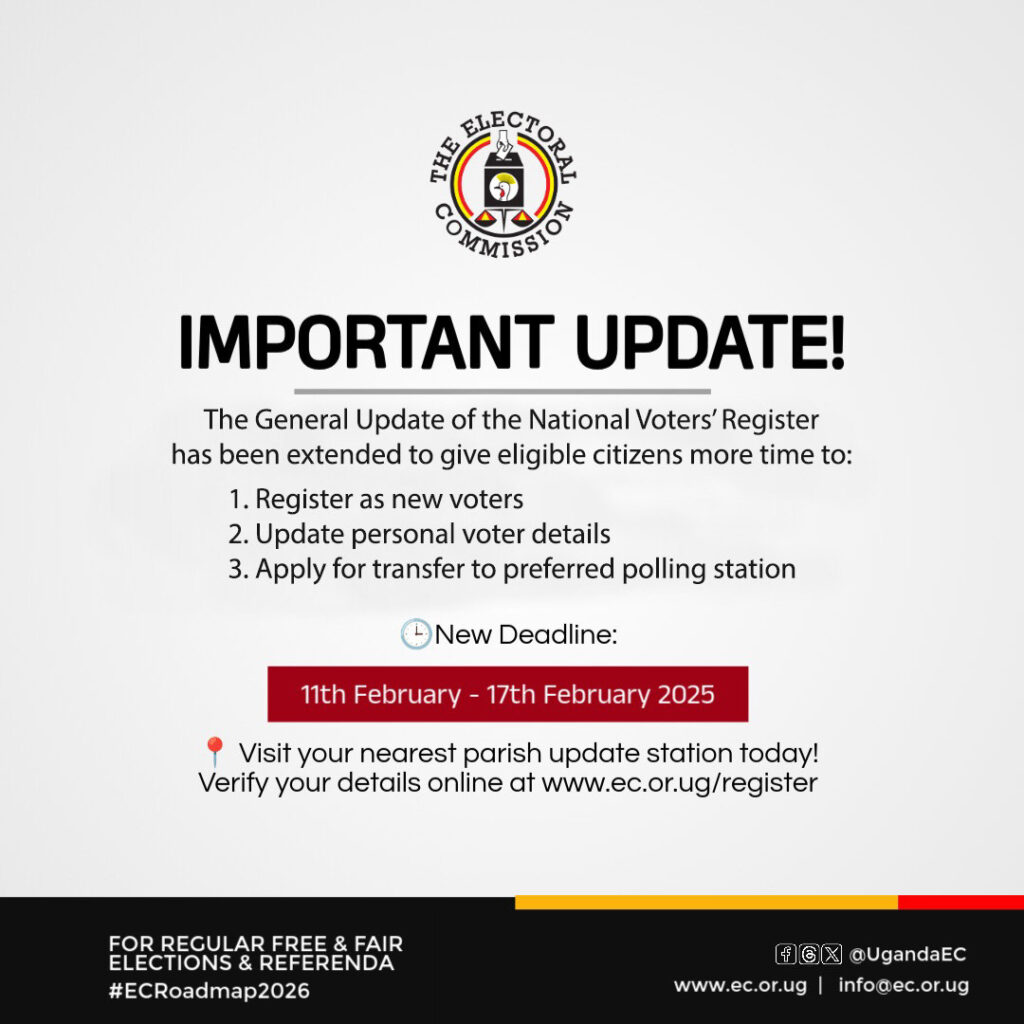RESEARCH FINDS NEWS (RFN): Please tell me briefly about yourself
PROF JULIUS KIKOMA: I am the Deputy Director in charge of administration and graduate training in the Directorate of Research and Graduate Training, here at Makerere University. Previously, I have served as Head and Dean, of the School of Psychology, and lately as Deputy Principal College of Humanities and Social Sciences.
RFN: briefly, what is this event?
PROF KIKOMA: Today’s event is the first annual forum for graduate research and policy dialogue. It is a forum during which graduate research and policy will engage in a conversation.
RFN: But you have focused this inaugural forum on “Regional Integration and Development.” What is the rationale?
PROF JULIUS KIKOMA: This is correct. Uganda is part of the integration process of the East African Community. The rationale, therefore, is to serve as a pivotal platform for fostering dynamic discourse among academia, policymakers, and stakeholders, aiming to bridge the gap between research and policy implementation in Uganda and the region. This theme challenges our PhD students and supervisors to tap into the opportunities presented by regional integration. In addition, it draws the attention of our graduate researchers to the importance of aligning their research to inform policy, which will in turn transform lives and communities.
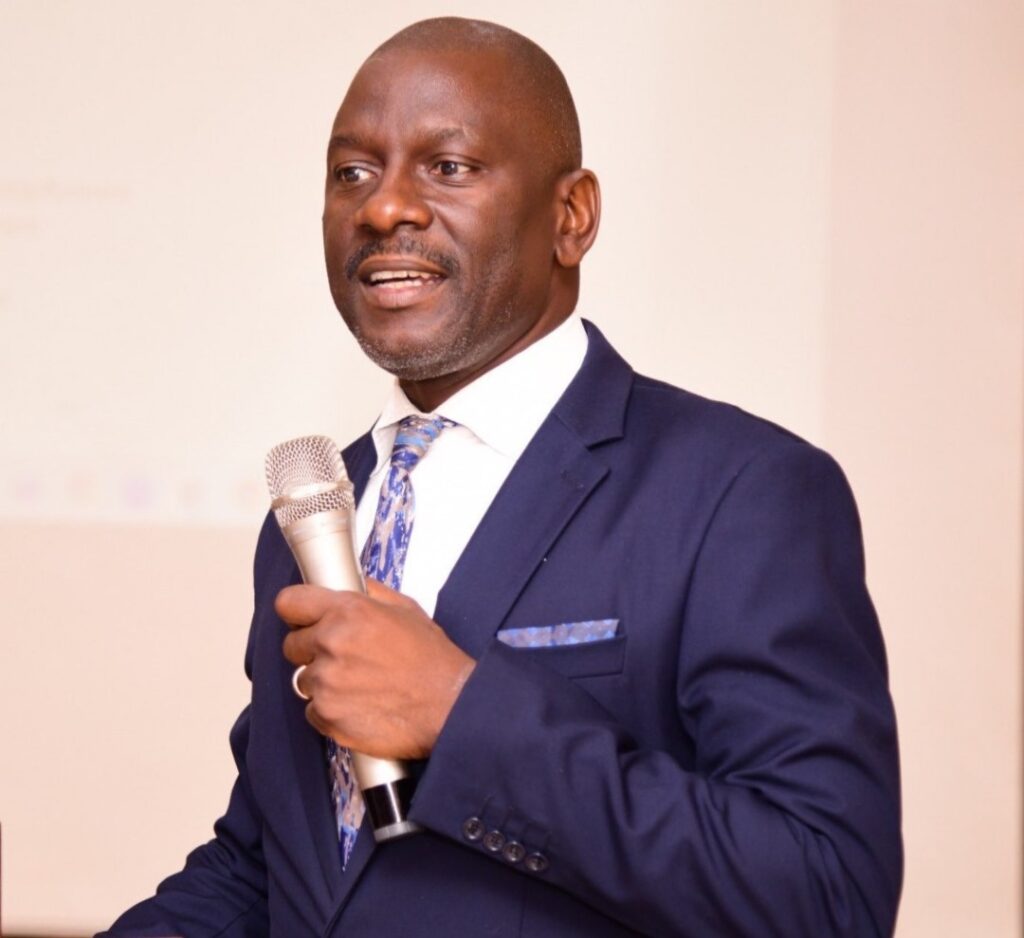
RFN: The focus speaks to graduate research. This presupposes graduate students. Explain this.
PROF. KIKOMA: This is correct. For the last three years, our doctoral students have been holding an annual convention during which they present their ongoing graduate research for continuous refinement. But because Makerere University positions itself as a research-led institution and with the help of Makerere University Research and Innovations Fund (Editor- MAKRIF), we felt it necessary to combine efforts by our scholars with those of the graduate students and establish an annual forum where research can start to dialogue with policy to foster national development.
RFN: Awesome! So, why is this event designed as a forum rather than a conference?
PROF. KIKOMA: This is a good question. We have decided to design this event as a forum because we want to create a conversational space. It’s a platform for scholars, decision-makers, and stakeholders to reflect on the importance of evidence-based policymaking. We aim to highlight emerging issues related to research as a public good.
RFN: This doesn’t look like a unique process. What unique problem is this forum addressing?
PROF. KIKOMA: Look. The current operating environment lacks sufficient input into civic participation. While civic culture and engagement are challenging to address, we recognize the need to enhance the capacity of researchers and students. Our goal is not only to produce knowledge but also to navigate the complex local context effectively.
RFN: Then why focus on impact literacy?
PROF. KIKOMA: Impact literacy is important if we must navigate the complex local context effectively, as I have said. Traditional metrics like citations and journal impact factors only indicate academic influence. However, they don’t fully explain the real-world impact of our research. The MAKRIF Framework at Makerere demands usable outputs beyond publications. Impact literacy helps bridge this gap.
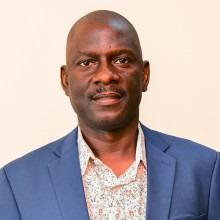
RFN: We understand that several sub-themes have been categorized for various conversations. How are these themes aligned with the national research agenda?
PROF. KIKOMA: First the sub-themes speak to the University’s priority research areas including: Health and Health Systems, Agricultural (crop & Livestock) transformation, Food Security and Livelihoods, Natural Resources Management and Climate Change, Education and Education Systems; Governance, Culture, Visual Arts, Social Justice, Communication and Sustainable development; Science and Technology. The priority areas are reflective of the national (including Vision 2040 and the National Development Plan III) and global aspirations as well as development frameworks.
RFN: How will this forum contribute to evidence-based solutions?
PROF. KIKOMA: Good question again. By engaging scholars, decision-makers, and stakeholders, we are going to create a policy-receptive environment. Higher Education Institutions play a crucial role in shaping evidence-based policies. This forum aims to foster dialogue and contribute to effective solutions.
RFN: You have talked about MAKRIF and its emphasis on tangible outcomes. What role is the changing research funding framework at Makerere playing in this forum?
PROF. KIKOMA: The shift in research funding models at Makerere through MAKRIF prompts us to question the sustainability and utility of closed research models. Metrics alone are insufficient. We must focus on tangible outcomes that benefit society beyond academic circles.
RFN: How has this forum been structured?
PROF. KIKOMA: This is a two-day event. The first one is focusing on policy briefs. A policy brief is a concise summary of a particular issue, the policy options to deal with it, and some recommendations on the best option. It is aimed at government policymakers and others who are interested in formulating or influencing policy. This first day will mostly provide a forum for our scholars to show us how their work has the potential to influence policy. It will be preceded by remarks from several dignitaries such as the President of the PhD Students, Ms. Claire Cheromoi, the Director of Research and Graduate Training – Prof Edward Bbaale, the Vice Chancellor Prof Barnabas Nawangwe and the Chief Guest Hon. Dr Crysostom Muyingo, the State Minister for Higher Education. We also expect the Special Advisor to His Excellency the President of Uganda, Mr. Odrek Rwabogo to give a keynote address.
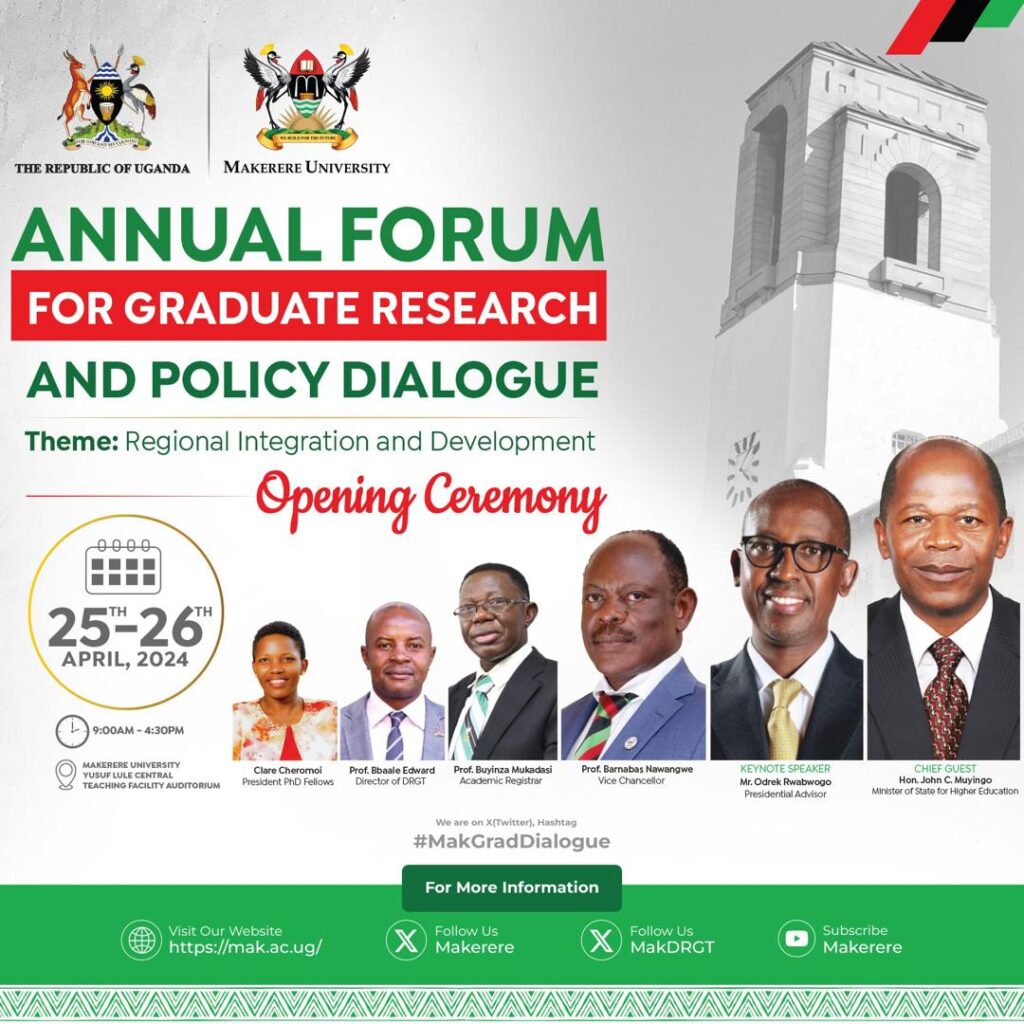
RFN NEWS: And the second day?
PROF. KIKOMA: The second will focus on the students’ abstracts and their full paper presentations. We have noticed a number of them are very good and students have worked hard. The aim at this point is continuous refinement. They will receive useful feedback and we want to ensure that their work can also be published in our approved journals.
RFN: What specific outcomes do you hope to achieve through this event?
PROF. KIKOMA: Prof. Kikoma: We expect several key outputs such as an improved appreciation of the relevance of research beyond academic circles. We expect to achieve an enhanced understanding of evidence-based policymaking. We also hope to use the forum to highlight emerging issues that require policy attention.
RFN: How will this forum benefit graduate students?
PROF. KIKOMA: By centering the event around students’ research outputs, the forum will provide an opportunity to enhance their capacity to engage effectively in policy engagement and communications. There will be follow-up initiatives to in-build skills for policy engagement into the students’ research process early on through policy seminars series at least once a semester aimed at providing opportunities for early engagement with stakeholders from the project outset. I also wish to add that graduate students will gain insights into navigating the complex terrain of research in the local context. They’ll learn how to contribute meaningfully to evidence-based solutions and engage in policy discussions. You know very well that their journey is still a work in progress. This is an opportunity for them to also pick useful feedback on their draft journal articles and theses. There will also be a session on mental health and wellness, innovations and intellectual property and so many other issues that compound the doctoral journey.

RFN: How will this forum benefit policy?
PROF. KIKOMA: Given the time pressures on policymakers the forum provides an opportunity for researchers to provide their policy processes with timely, relevant, and empirical research information. They can use actionable and evidence-informed recommendations from research to make rapid and impactful decisions.
RFN: What distinguishes this forum from other academic gatherings?
PROF. KIKOMA: Unlike conferences, this forum emphasizes conversation over formal presentations. It’s a space for dialogue, reflection, and collaboration. We want to foster a deeper understanding of research’s societal impact.
RFN: Earlier on you emphasized the importance of impact literacy. What challenges do you anticipate in promoting this beyond the forum?
PROF. KIKOMA: The idea of overcoming the mindset that metrics alone suffice for research success is a challenge. We need to shift the focus from numbers to tangible change. Additionally, engaging policymakers effectively requires strategic communication.
RFN: At ResearchFinds News, this is what we are trying to achieve.
PROF. KIKOMA: You have pioneered an important vehicle for effortlessly communicating research findings. Congratulations.
RFN: Thank you. Now, how should participants actively contribute to evidence-based policy-making after attending this forum?
PROF. KIKOMA: When these two days are done, participants will be equipped with the necessary tools to advocate for evidence-based approaches in their respective fields. It is hoped that they will collaborate across disciplines to address complex societal issues and use their research to inform policy decisions, and drive positive change in Uganda and the region. Remember, this forum aims to empower participants to be catalysts for impactful research and policy development.
RFN: Thank you for your time.
PROF. KIKOMA: Thank you for the opportunity to air out these important issues.
About The Author
Arinaitwe Rugyendo
Rugyendo is the Founder and Editor-in-Chief of ResearchFinds News. He’s an accomplished journalist with a rich background in the media industry in Uganda. With over two decades of experience, Rugyendo has held various roles including cab reporter, Bureau Chief, Managing Editor, and Digital Media Editor at renowned publications such as Daily Monitor and Red Pepper. Throughout his career, he has demonstrated a commitment to delivering high-quality journalism and staying at the forefront of media trends. In addition to his journalistic pursuits, Rugyendo is currently pursuing a Ph.D. in Journalism and Communication at Makerere University. He has been recognized for his outstanding leadership and commitment to social change as a Desmond Tutu Fellow and Crans Montana New Leader. Rugyendo also serves as the Chairman of Young Engineers Uganda and Uganda Premier League, showcasing his dedication to promoting excellence and growth in various fields. With a passion for driving innovation and pushing boundaries in media, Rugyendo continues to make significant contributions to the industry. His vast experience, academic pursuits, and leadership roles make him a respected figure in the Ugandan media landscape.

